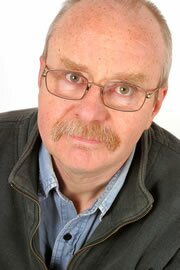Politics and Paranoia by Robin Ramsay
 I was in France for a week, rural central France east of Poitiers, rolling fields and little towns and villages – twenty miles from the nearest Big Mac. What struck me most was the presence, in any settlements of over a few hundred, of the French state. There is the Mairie, the post office and the police. France has not followed the insanity of privatising its public services. France has not yet decided that the state is the problem.
I was in France for a week, rural central France east of Poitiers, rolling fields and little towns and villages – twenty miles from the nearest Big Mac. What struck me most was the presence, in any settlements of over a few hundred, of the French state. There is the Mairie, the post office and the police. France has not followed the insanity of privatising its public services. France has not yet decided that the state is the problem.
One of the books I took with me was Naomi Kline’sThe Shock Doctrine. This is everything the critics said it was when it appeared in hard back. This a major must-read. The best thing about Kline is her portrait of privatisation as essentially theft. Her most striking chapter is on the privatisation of the Pentagon and US intelligence. Outsourcing intelligence? This is among the most bizarre and stupid political acts I have come across since I became politically conscious 30 years ago; yet it has produced almost no opposition from the Democratic Party or from the affected bureaucracies (presumably because the Democrats are afraid to say anything and the bureaucrats are being paid enough by the private sector to keep their mouths shut or are afraid to lose their jobs). The corporate seizure of hundreds of billions of Pentagon spending is merely the process begun under Eisenhower – only spreading out through the entire military supply operation. The former President of the Dominican Republic, Juan Bosch, who was deposed by a US-sponsored coup in 1965, described this system whereby the Pentagon got its hands on half the US federal tax take as Pentagonism. More recently it has been described as parasitical imperialism (the population being exploited is domestic not overseas).
It used to be thought of as the military-industrial complex – with the presumption that the military half of the term was calling the shots and had satellite corporations providing the hardware. The present system looks remarkably like the roles reversed: there are the big corporations (Halliburton et al) and their residual military wings which exist to do the fighting required to justify the appropriation of the tax dollar. Kline – and Chalmers Johnson, for example – would say that it was futile to try and divide the military from the industrial: they have merged. In a sense this is true; but in any merger one one part may be bigger and more powerful than the other. Which is it in this case? The mercenary/security company Blackwater may be a substantial military force but is insignificant compared to the US Army and its income comes entirely from the American state. Fiscal taps turned on can be turned off.
Like many of the current crop of critics of globalisation, Klein is weakest when it comes to the alternatives to it. For the obvious alternative is nationalism; or, at any rate, nationally-based economics and politics. But like most leftists, Klein thinks that the N word is appropriate for so-called developing societies but not for her own. In the leftist mind the N word is forever contaminated by its association with the right. But what is the alternative?
Which brings me back to the tricolour flying outside the office of the Mairie or the Gendarmerie in the little French towns. Globalisation as presently constructed cannot long survive a world resources and energy crisis. Ryanair, which flies between Poitiers and Birmingham, may not do so for much longer; and even if it does its prices will rise sharply. Without Ryanair (or its equivalent), getting from Hull to central France is a very long day’s drive or rail trip. If any of the eco-doomster’s analyses about the near future are true we are going to need a great deal of state intervention to husband and distribute this society’s declining resources. At present all three major political parties in this country are still adherents of the idiotic belief, so assiduously propagated by the private sector, that the problems in society are mostly caused by the state’s intervention in it and thus the solution is to get the state out of our lives.
Oh, and did I mention that the roads in rural France are as smooth as bowling greens? In a week’s driving around we never came across a single pothole. Vive La France! Vive la belle France!